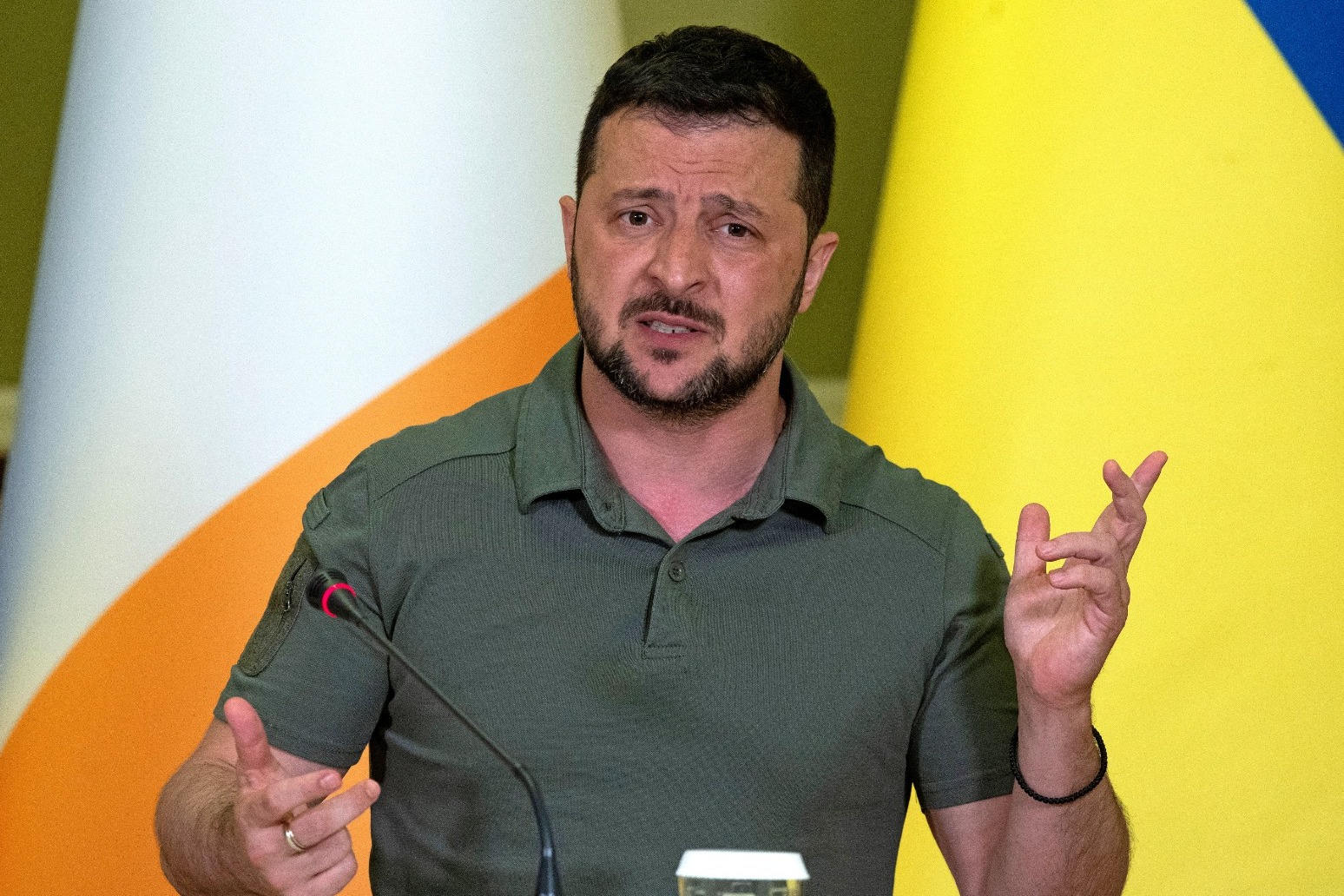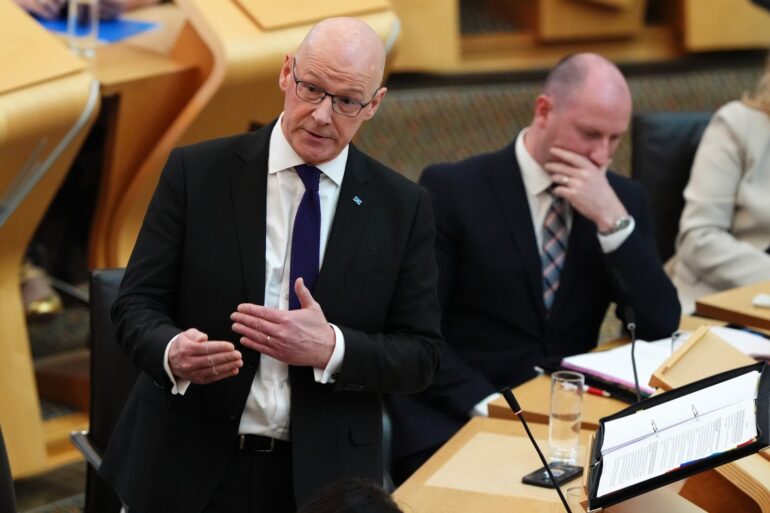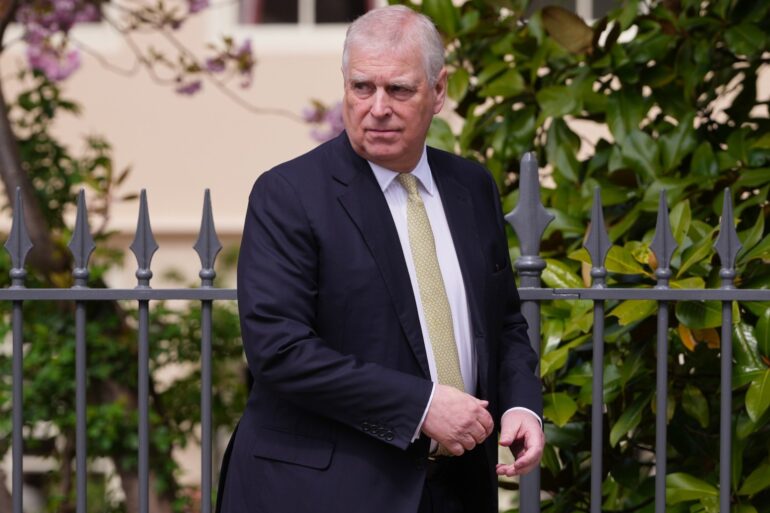-
 play_arrow
play_arrow
Kl 1 Radio Local radio for west Norfolk
-
 play_arrow
play_arrow
KL DISCO KL Disco Playing Disco Music from the 70's onwards.24/7
-
 play_arrow
play_arrow
KL COUNTRY KL COUNTRY Playing New and Classic Country Music 24/7
-
 play_arrow
play_arrow
KL ROX KL ROX The best of New and Classic Rock.24/7
-
 play_arrow
play_arrow
KL SUMMER Summer Vibes 24/7 from KL1 Radio across West Norfolk
-
 play_arrow
play_arrow
KL CLASSICAL Your Symphony Starts Here
-
 play_arrow
play_arrow
KL CHILL Just Chill!
-
 play_arrow
play_arrow
KL POP The Best POP Hits all day Long!
-
 play_arrow
play_arrow
KL XTRA KL XTRA
music_note
Mobilisation law comes into force as Ukraine struggles to boost troop numbers


A mobilisation law has come into force in Ukraine as Kyiv struggles to boost troop numbers after Russia launched a new offensive.
The legislation, which was watered down from its original draft, will make it easier to identify every conscript in the country. It also provides incentives to soldiers, such as cash bonuses or money towards buying a house or car, that some analysts say Ukraine cannot afford.
Ukraine’s parliamentarians dragged their feet for months and only passed the law in mid-April, a week after Ukraine lowered the age for men who can be drafted from 27 to 25.
The measures reflect the growing strain that more than two years of war with Russia has had on Ukraine’s forces, who are trying to hold the front lines in fighting that has sapped the country’s ranks and stores of weapons and ammunition.
Ukrainian President Volodymyr Zelensky also signed two other laws on Friday, allowing prisoners to join the army and increasing fines for draft dodgers five-fold. Russia enlisted its prisoners early on in the war, and personnel shortages compelled Ukraine to adopt the new measures.
Oleksii Tarasenko, a deputy commander of a Ukrainian assault battalion, said that his men felt “awful” about the law’s failure to address the issue of demobilisation. Although many Ukrainian troops have been fighting since the war’s early days, it remains unclear when and how they might be relieved of duty.
“It feels like a cruel injustice towards people who have been fighting for two years, and of course, it has a highly negative effect on the psychological state of soldiers and their families,” Mr Tarasenko said.
Early drafts of the law envisaged the demobilisation of troops after 36 months, and the rotation of those serving on the front line for more than half a year.
These clauses were dropped following a last-minute appeal by Ukraine’s military leadership, concerned that the armed forces would be left without their best-trained and most experienced troops. The Ukrainian Defence Ministry is working on a separate demobilisation law.
Mr Tarasenko said that despite their weariness, his comrades could see the generals’ point.
“We already see how many people are lacking, especially professional troops in the units. And simply allowing such professional people who have been through a lot to demobilise would be wrong,” he said.
Russian troops, meanwhile, are pushing ahead with a ground offensive that opened a new front in north-eastern Ukraine’s Kharkiv region and put further pressure on Kyiv’s overstretched military. After weeks of probing, Moscow launched the new push knowing that Ukraine suffered personnel shortages, and that its forces have been spread thin in the north east.
Russian President Vladimir Putin said on Friday during a visit to China that the Russian push aims to create “a buffer zone” rather than capturing Kharkiv, the local capital and Ukraine’s second-largest city.
Still, Moscow’s forces have pummelled Kharkiv with strikes in recent weeks, hitting civilian and energy infrastructure and prompting angry accusations from Mr Zelensky that the Russian leadership sought to reduce the city to rubble. On Friday, Mayor Ihor Terekhov said that Russian guided bombs killed at least three residents and injured 28 others that day.
Moscow denies deliberately targeting civilians, but thousands have died or suffered injuries in the more than 27 months of fighting.
Kharkiv regional governor Ihor Syniehubov on Saturday said that nearly 10,000 civilians had to be evacuated from frontline areas near the Russian border. Only 100 residents remain in Vovchansk, the border town at the centre of Moscow’s grinding push that is now largely in ruins. The town had a pre-war population of more than 17,400.
The US last week announced a new 400 million dollar package of military aid for Ukraine, and President Joe Biden has promised that he would rush badly needed weaponry to the country to help it stave off Russian advances.
Still, only small batches of US military aid have started to trickle into the front line, according to Ukrainian military commanders, who said it will take at least two months before supplies meet Kyiv’s needs to hold the line.
Thousands of Ukrainians have fled the country to avoid the draft since Russia’s all-out invasion in February 2022, some risking their lives as they tried to swim across a river separating Ukraine from neighbouring Romania and Hungary.
Late on Friday, Ukraine’s border service said that at least 30 people have died trying to cross the Tisza River since the full scale-invasion.
Romanian border guards days earlier retrieved the near-naked, disfigured body of a man that appeared to have been floating in the Tisza for days, and is the 30th known casualty, the Ukrainian agency said in an online statement. It said the man has not yet been identified.
Published: by Radio NewsHub

Similar posts
Upcoming shows

Tom Green – Classic Hit Lunchtime
11:00 am - 1:00 pm

Darren Furzey – Classic Hit Weekend
1:00 pm - 3:00 pm

Lee Vincent – Classic Hit Saturday
3:00 pm - 6:00 pm

James Roberts – Saturday Anthems
6:00 pm - 8:00 pm

Liam Walsh – Guilty Pleasures
8:00 pm - 10:00 pm
-

Town clothing store soon to get click and collect service

Knife offender breached court order because his ankle tag caused him ‘injury’

Have a crack at the toughest pub quiz on the internet

Disqualified driver riding electric bike caught out by plain-clothed officers

Duke of Yorks accuser Virginia Giuffre dies aged 41
Message Us
Copyright The Mediasite UK - 2025



